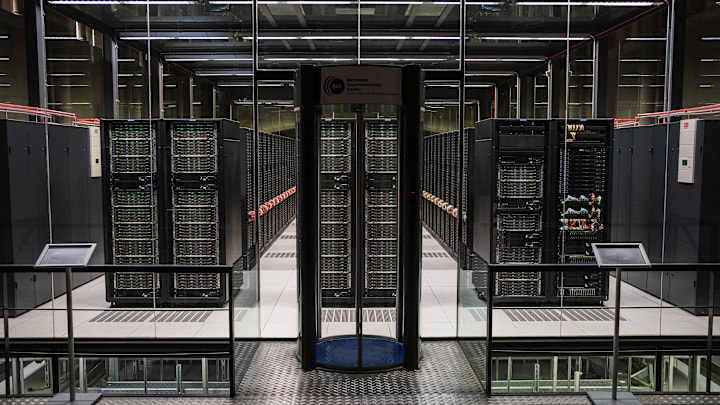Quantum Computing: Why It’s the Next Big Thing in Tech

For decades, computers have been getting smaller, faster, and more powerful. But as we approach the physical limits of classical computing, a revolutionary shift is on the horizon—quantum computing. Unlike traditional computers that process information in binary (0s and 1s), quantum computers leverage the strange properties of quantum mechanics to perform calculations at speeds unimaginable with today’s technology.
So why is quantum computing such a big deal? Let’s explore how this cutting-edge technology works, its potential applications, and the challenges that need to be overcome before it reshapes industries worldwide.
How Quantum Computing Works
At the core of quantum computing are qubits (quantum bits), which differ from classical bits in two fundamental ways:
- Superposition: While classical bits can only be 0 or 1, qubits can exist in both states simultaneously. This means a quantum computer can perform multiple calculations at once, exponentially increasing its processing power.
- Entanglement: When qubits become entangled, their states are interconnected, even if they are far apart. This allows quantum computers to perform complex operations more efficiently than classical computers.
Together, these principles enable quantum computers to solve problems that would take even the most advanced supercomputers millions of years to compute.
Why Quantum Computing Matters
1. Solving Problems Classical Computers Can’t Handle
Many real-world problems involve massive datasets and complex calculations that classical computers struggle with. Quantum computing could revolutionize fields like climate modeling, financial simulations, and logistics optimization, solving problems in minutes that would otherwise take years.
2. Transforming Cryptography and Cybersecurity
One of the most talked-about impacts of quantum computing is its ability to break traditional encryption. Current encryption methods, such as RSA and AES, rely on the difficulty of factoring large numbers—something classical computers find extremely challenging. However, a sufficiently powerful quantum computer could crack these encryptions almost instantly, posing a major security risk.
To counter this, researchers are developing quantum-safe cryptography to ensure data security in a post-quantum world.
3. Advancing Drug Discovery and Materials Science
Pharmaceutical companies and materials scientists face enormous computational challenges when simulating molecular interactions to develop new drugs or materials. Quantum computers could accelerate these simulations, leading to breakthroughs in medicine, nanotechnology, and energy-efficient materials.
For example, researchers hope that quantum simulations will lead to cures for diseases like Alzheimer’s or the discovery of new superconducting materials for ultra-efficient power grids.
4. Revolutionizing Artificial Intelligence and Machine Learning
AI and machine learning require massive amounts of data processing. Quantum computing has the potential to enhance pattern recognition, optimization, and decision-making, leading to smarter, more efficient AI systems.
Quantum-enhanced AI could improve everything from autonomous vehicles and financial forecasting to medical diagnostics and personalized medicine.
5. Optimizing Global Logistics and Supply Chains
Industries like transportation, manufacturing, and e-commerce rely on complex optimization algorithms to improve efficiency. Quantum computing could help businesses solve logistical challenges, such as reducing traffic congestion, minimizing delivery times, and optimizing warehouse operations.
Companies like DHL and Volkswagen are already exploring quantum computing to improve supply chain logistics and reduce fuel consumption in fleet management.
The Challenges of Quantum Computing
Despite its promise, quantum computing is still in its early stages and faces significant hurdles:
- Hardware Limitations: Building and maintaining stable qubits is extremely difficult. Most quantum computers operate in near-absolute-zero temperatures to minimize errors caused by environmental interference.
- Error Rates and Stability: Qubits are highly sensitive to noise, leading to computational errors. Researchers are working on error correction techniques to make quantum computing more reliable.
- Scalability: While small-scale quantum computers exist, building large, practical quantum systems with millions of qubits remains a challenge.
- High Costs: Quantum computing requires specialized hardware, making it expensive for widespread adoption. However, companies like IBM, Google, and Microsoft are offering cloud-based quantum computing services, making the technology more accessible.
When Will Quantum Computing Become Mainstream?
Quantum computing is advancing rapidly, but we are still years—possibly decades—away from widespread adoption. However, major tech companies and governments are investing billions into research, and breakthroughs are happening faster than expected.
In the near future, hybrid computing (combining quantum and classical computing) will likely be used for specialized applications, gradually integrating quantum capabilities into industries before full-scale quantum computers become viable.
The Future of Quantum Computing
The race to quantum supremacy—the point where quantum computers outperform classical supercomputers—is already underway. Google, IBM, and China’s quantum research teams have claimed early victories, but practical, real-world applications are still in development.
When quantum computing reaches its full potential, it will redefine industries, accelerate scientific discovery, and create entirely new technologies. From revolutionizing healthcare and AI to securing the next generation of cybersecurity, quantum computing isn’t just the next big thing—it’s the future of computing itself.